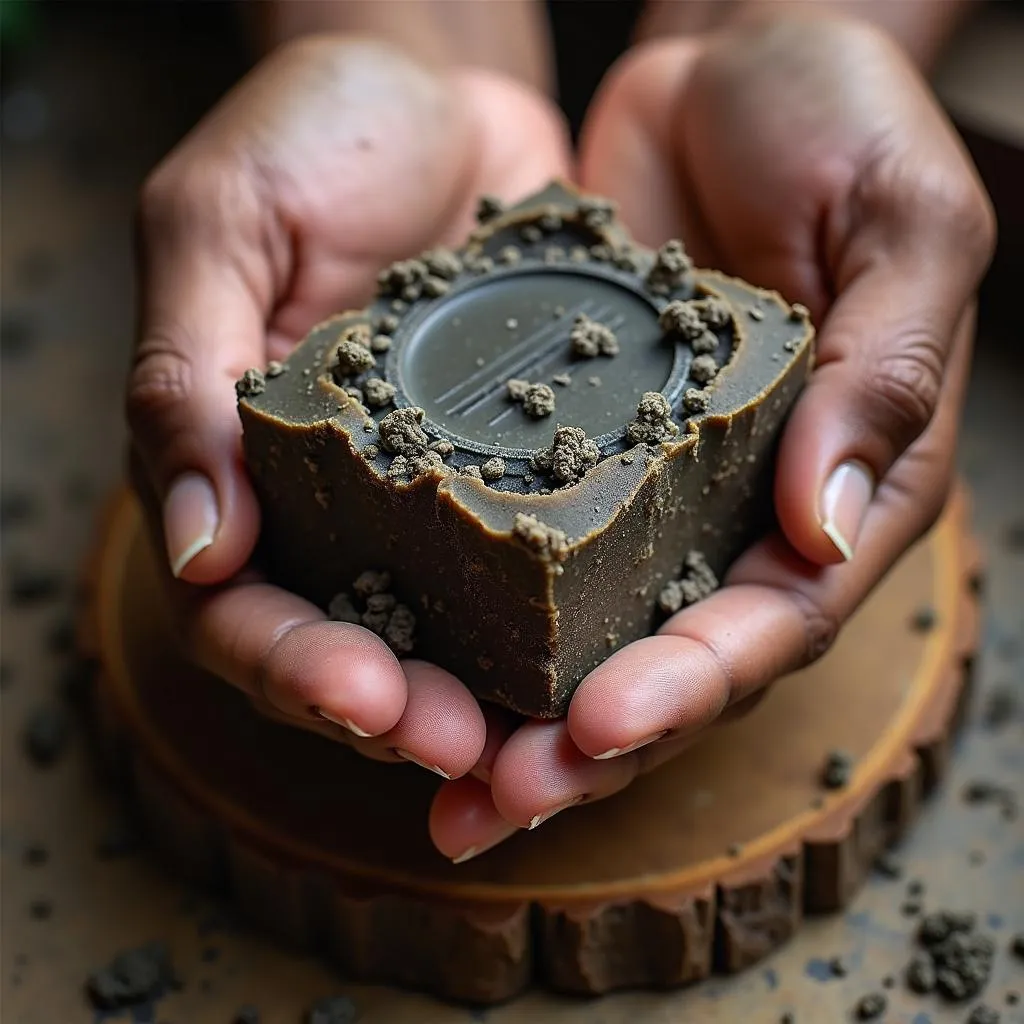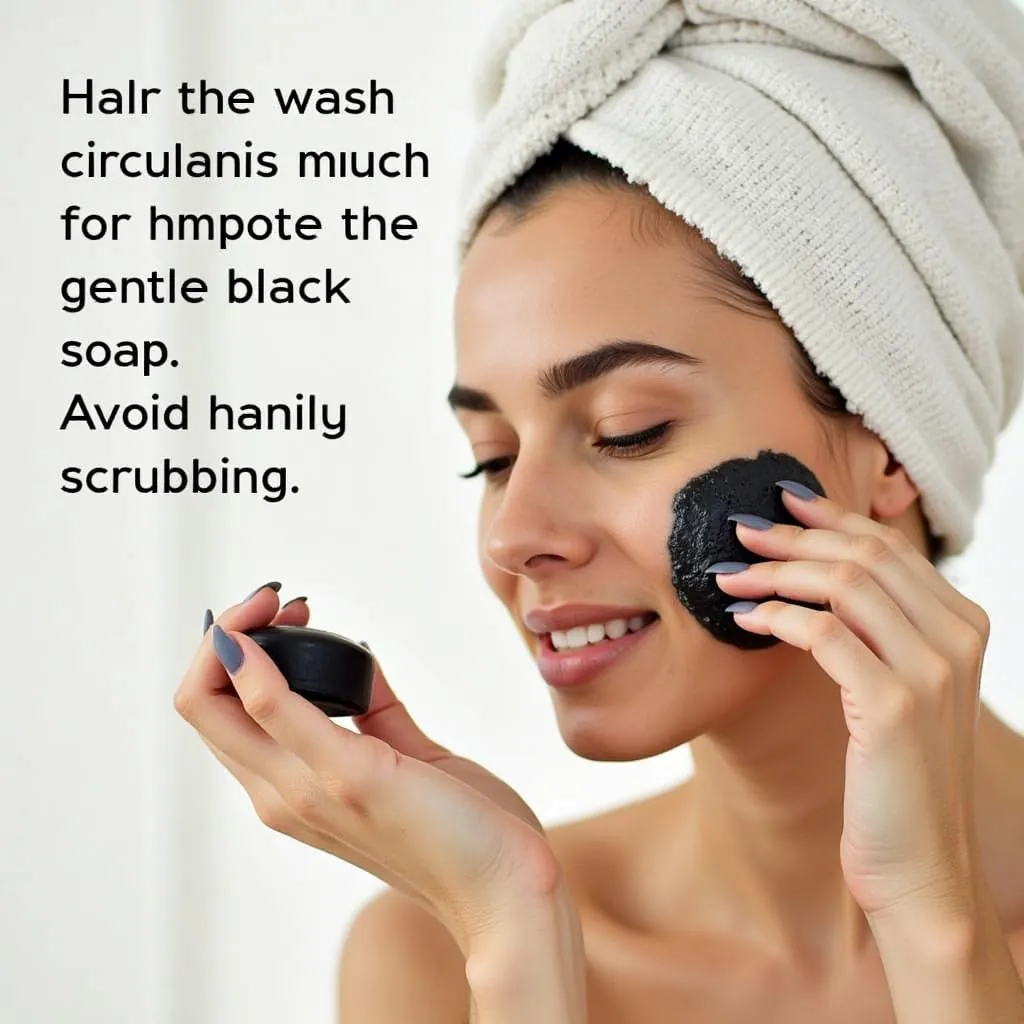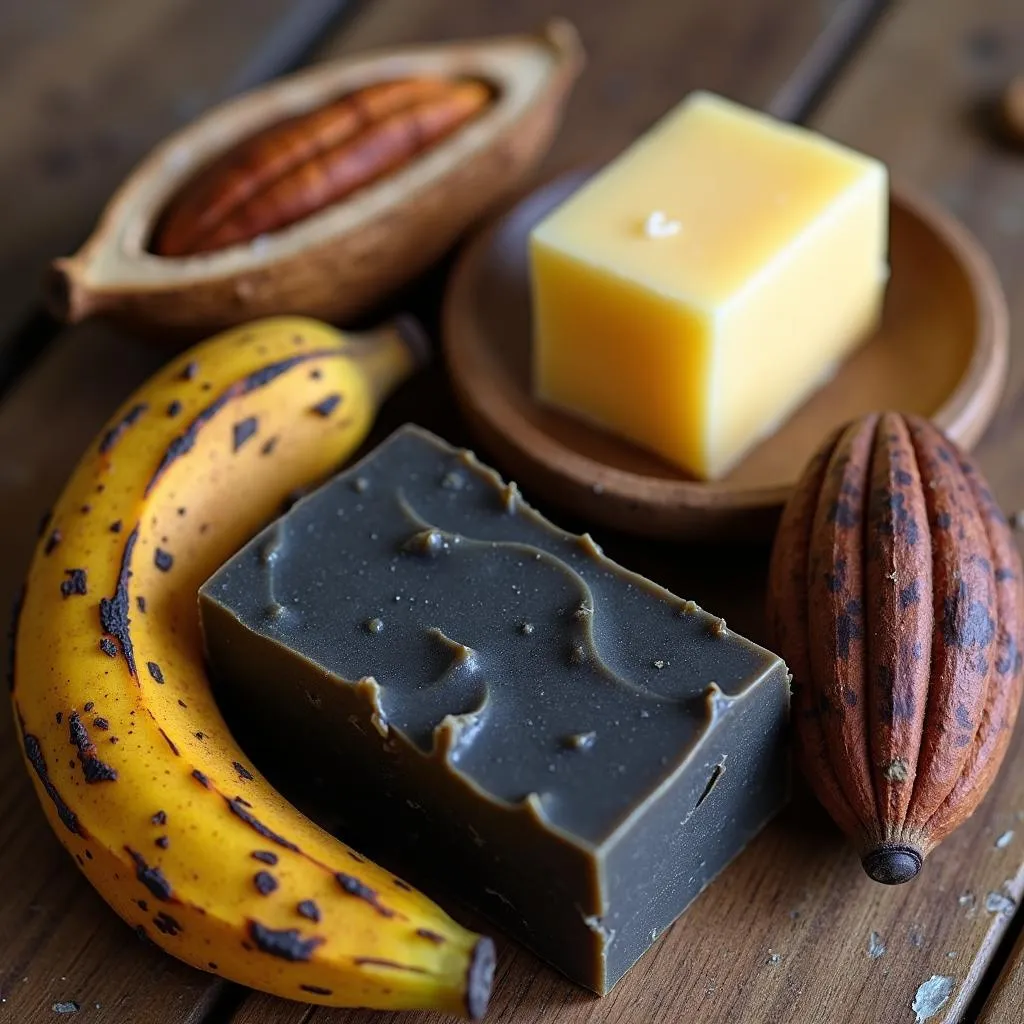Why Does My African Black Soap Burn? Understanding the Sting and How to Prevent It
African black soap, a cherished beauty staple across the continent and beyond, is renowned for its natural purity and skin-nurturing properties. From combating acne to fading blemishes, this ancient cleanser has earned its place in countless skincare routines. But its remarkable benefits often come with a puzzling side effect: the infamous “African black soap burn.” If you’ve ever felt a tingling or stinging sensation after using this beloved soap, you’re not alone.
 Close-up of African black soap lather
Close-up of African black soap lather
Deciphering the Burn: Why Does it Happen?
Contrary to its name, African black soap doesn’t actually “burn” the skin. The tingling or stinging is often a sign of the soap working its magic, drawing out impurities and toxins. This cleansing action can be attributed to the soap’s unique composition:
-
High Alkalinity: African black soap is made from raw, natural ingredients including plantains, cocoa pods, palm oil, and shea butter, all of which contribute to its naturally high pH level. This alkalinity, while effective in cleansing, can sometimes disrupt the skin’s natural pH balance, leading to dryness, irritation, or that familiar burning sensation.
-
Potent Plant Compounds: The soap is a powerhouse of natural antioxidants and anti-inflammatory agents derived from its plant-based ingredients. While beneficial in the long run, these compounds can initially cause a mild reaction, especially for sensitive skin types.
-
Exfoliating Action: Authentic African black soap often contains small particles of plant matter, acting as a natural exfoliant. While this helps to slough away dead skin cells, it can sometimes be too abrasive, leading to irritation and that uncomfortable stinging sensation.
Is the Burn Always a Bad Thing?
Not necessarily. A mild tingling sensation that subsides quickly can actually be a positive sign. It often indicates that the soap is effectively cleansing your pores and removing impurities. Think of it as your skin’s way of saying, “I’m detoxing!” However, a persistent burning sensation, excessive redness, or a rash are all red flags. These reactions suggest that your skin is irritated and needs a gentler approach.
 A woman gently washes her face with African black soap
A woman gently washes her face with African black soap
Taming the Sting: Tips for Preventing African Black Soap Burn
The good news is that you can enjoy the benefits of African black soap without enduring the burn. Here are some proven strategies:
-
Choose Authentic Soap: Opt for unrefined, raw black soap from reputable sources. Mass-produced versions often contain harsh chemicals and artificial fragrances that can exacerbate irritation. Look for soaps with a deep brown or black color and a slightly crumbly texture.
-
Patch Test is Key: Before slathering your entire face with black soap, do a patch test on a small, inconspicuous area of your skin, like the inside of your wrist. This simple step can help you gauge your skin’s sensitivity and prevent a full-blown reaction.
-
Lather Up Gently: Avoid aggressive scrubbing. Instead, work the soap into a rich lather in your hands and gently massage it onto your face in circular motions. Remember, gentle cleansing goes a long way.
-
Shorten Contact Time: Don’t leave the soap on your skin for too long. Limit your cleansing routine to 30-60 seconds to minimize the risk of irritation.
-
Moisturize Immediately After: Follow up with a gentle, fragrance-free moisturizer to replenish lost moisture and restore your skin’s natural pH balance.
-
Listen to Your Skin: If you experience any persistent burning, redness, or discomfort, discontinue use and consult with a dermatologist.
Can I Still Use African Black Soap If I Have Sensitive Skin?
Absolutely! You don’t have to miss out on the benefits of this amazing cleanser. Try these tips to incorporate African black soap into your sensitive skincare routine:
-
Dilution is Key: Mix a small amount of black soap with water or a gentle, pH-balanced cleanser to create a less concentrated solution. This reduces the soap’s potency, making it gentler on sensitive skin.
-
Frequency Matters: Start by using the soap once or twice a week and gradually increase the frequency as your skin builds tolerance.
-
Hydration is Crucial: Always follow up with a rich moisturizer specifically formulated for sensitive skin.
 A collection of natural ingredients used to make African black soap
A collection of natural ingredients used to make African black soap
Conclusion: Embrace the Gentle Power of African Black Soap
African black soap, with its rich history and natural goodness, remains a skincare treasure. By understanding why the “burn” occurs and implementing these simple tips, you can harness its power while keeping your skin happy and healthy.
FAQs
1. Is African black soap suitable for all skin types?
While generally safe, those with extremely sensitive skin or specific skin conditions should consult a dermatologist before use.
2. Can I use African black soap on my body?
Yes, it’s an excellent cleanser for the entire body.
3. How often should I use African black soap?
Start with 2-3 times a week and adjust based on your skin’s response.
4. Where can I find authentic African black soap?
Look for reputable online retailers or visit specialty African stores.
5. Does African black soap lighten the skin?
While it can help to fade dark marks and blemishes, it doesn’t bleach the skin.
Need more help? Contact us:
Phone Number: +255768904061
Email: [email protected]
Address: Mbarali DC Mawindi, Kangaga, Tanzania.
Our customer service team is available 24/7.
Explore more about African beauty secrets:
- Discover the difference between african butter vs shea butter and their unique benefits.

